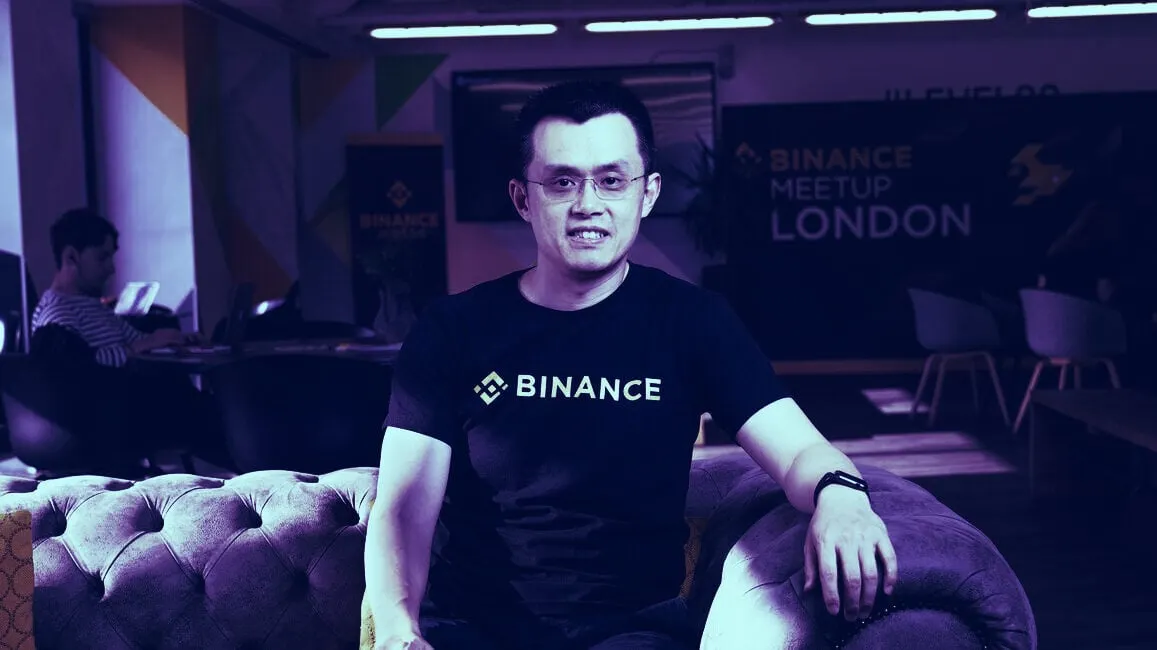In brief
- The CEO of Binance said in an interview that Tron CEO Justin Sun should have polled the community before making a move on Steemit.
- Sun had enlisted the help of exchanges, including Binance and Huobi, who've since withdrawn their support.
Binance CEO Changpeng Zhao attempted to quell concerns that he helped Justin Sun, CEO of TRON, stage a coup of the Steemit blockchain network, according to reports today.
"Our relationship with Justin Sun is the same as with any other project listed on Binance. There are no equity holdings or investments of any kind between us," Zhao told CoinTelegraph, according to an unedited version of the transcript he tweeted. " I wouldn’t even say I have much of a personal relationship with him outside of work," he added.
The Sun-Steemit saga thus far
Zhao's comments were designed to address fears that his company helped Sun stage a hostile takeover of the Steem network, following a vote by the Steem community to temporarily prevent Sun from accessing some of his money.
Sun had recently bought Steemit, a decentralized social network that sits atop the Steem blockchain. With his purchase, Sun was also entitled to around $12 million worth of pre-mined tokens on the network.
On Steem, token holders vote on proposals about how to upgrade the network. The richest users have the most influence.
The Steem community trusted Steemit's former owner, Ned Scott, not to use those tokens to influence the future of the network. But they didn't trust Sun, so they voted in favor of a soft fork that prevented him from using those tokens.
Sun retaliated by calling the community “hackers,” and worked with Binance, Huobi, and Poloniex to unlock his money. Exchanges stake their customers’ money, so they're among the richest players on the network.
Binance and other exchanges were for the take over
The exchanges agreed to delegate their power to Sun, who summarily voted sockpuppet accounts into the network's elite governing council, pushing community members out. But the coup caused a ruckus online.
After much uproar, Binance and Huobi withdrew their votes. "I did approve the vote from Binance, thinking (wrongly) it was a regular upgrade/fork. For that, I apologize. Guess it is only fair that I get involved until the issue is resolved," tweeted Zhao today.
In the CoinTelegraph interview, Zhao said that Sun hadn’t personally contacted him about it, but that his “internal team said it was a necessary network upgrade.” He added, “there are network upgrades all the time, and we are always supportive. So that was that.”
He tweeted that he is "not an expert on STEEM," and that, since Binance deals with hundreds of blockchain projects, each unique in their own way, it's unrealistic to expect him to "know them all". Of course, since his company is one of the most influential players on the network, many expect him to do his due diligence.
Since the exchanges withdrew their votes, the Steem community has regained control over the network. The exchanges and Sun no longer comprise the majority of the top 20 network “witnesses”—the small group of elites who control the network.
But Zhao criticized the community’s original decision to temporarily freeze Sun’s funds. “Network nodes should never collude to freeze other people’s funds. That goes against the basic ethos of decentralized networks and blockchain. Doing that will destroy the network value significantly.”
Pot kettle black
“Our principle is to always respect users' rights," said Zhao in the interview with Cointelegraph. He added in a tweet:"We may implement a vote feature on Binance to allow people to vote in the future. This way, we protect users ability to vote."
He advised that Sun first “get support” from the community before these sorts of action, and only “then do it. Transparency works.”
In a town hall meeting yesterday, Sun appeared to have taken this advice on board, saying, “We won’t interfere in the voting process as long as our funds are secure.”
Daily Debrief Newsletter
Start every day with the top news stories right now, plus original features, a podcast, videos and more.

